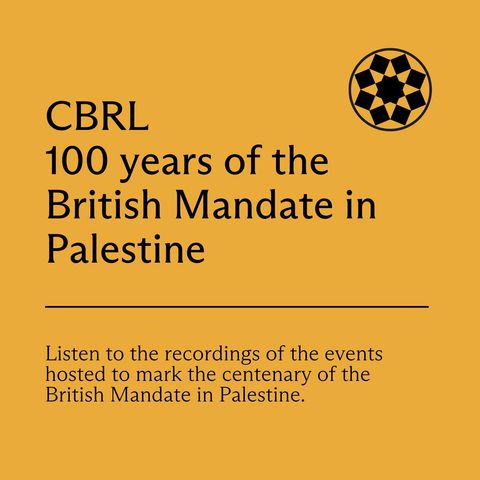
29 NOV. 2022 · We were joined by Professor Hughes for the third event of our series of events to mark the centenary of the British Mandate in Palestine (1922-48).
Professor Hughes used material from his recent book on Britain’s repression of the Arab revolt in the 1930s to detail Britain’s devastatingly effective methods against colonial rebellion. The British army had a long tradition of pacification that it drew upon to support operations against Palestinian rebels in 1936. An Emergency State of repressive colonial legislation underpinned and combined with military action to crush the Arab revolt. The British had established in the 1920s in Palestine a civil government that ruled by proclamation and it codified in law norms of collective punishment that British soldiers used in 1936. This was ‘lawfare’. It ground out the rebellion with legally bounded curfews, demolition, fining, detention, punitive searches, shootings, and reprisals. Such repressive legislation facilitated soldiers’ violent actions. Rebels were disorganised and unable to withstand such pacification measure, and so they lost.
29 NOV. 2022 · In this talk Dr Muna Dajani looks at how a unified watershed governance was devised by external powers, mainly the British and Americans, to construct the water resources of the Jordan River Basin as a unified, apolitical and ‘natural’ watershed. In their attempt to depoliticise the boundaries of the watershed, these forces reinforced a particular worldview that considered natural resources as sites of extractivism and exploitation in the quest for modernity and nation state-building. This resulted in a highly politicised, securitised and dehistoricised conceptualisation of water and its governance. The talk draws on examinations of technical and hydrogeological water availability and use, while also paying attention to ever-changing relations between humans and their environment. It examines how engineers and government representatives engage with water as a resource and sheds light on how ethnographic inquiry into watersheds could challenge the rigidity and banality of scientific conceputalisations and understandings about water and its flows.
29 NOV. 2022 · This webinar considers British involvement in and attitudes towards Palestine during the so-called “Peaceful Crusade” of the nineteenth century. Polly presents aspects of his book Palestine in the Victorian Age, arguing that Britain’s occupation, and the Zionist movement’s settler-colonisation, were significantly prefigured by Victorian Britons. Drawing on Evangelical Christian discourses around the Holy Land and the Jewish people and the geopolitical rivalries of the Eastern Question, these individuals created expectations for Palestine’s future which were then put into practice from 1917 to 1948 and beyond.
Polly also undertakes a historiographical consideration of nineteenth-century Palestine. Narratives beginning in 1917 not only elide the longer role of Western imperialism in the Palestinian tragedy, but also fail to convey the social, economic and environmental conditions existing before colonisation, giving an impression – inadvertently or purposefully – of a land without a history, or as some would have us believe, without a people.
This webinar is the first in a series of events organised by the CBRL Kenyon Institute marking the centenary of the British Mandate in Palestine (1922-1948).
Copyright 2024 - Spreaker Inc. an iHeartMedia Company
